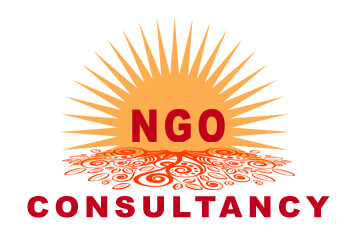Section 12A and Section 80g
An NGO can avail income tax exemption by getting itself registered and complying with certain other formalities, but such registration does not provide any benefit to the persons making donations. The Income Tax Act 1961 has certain provisions which offer tax benefits to the "donors". All NGO's should avail the advantage of these provisions to attract potential donors. Section 80G is one of such sections. If an NGO gets itself registered under section 80g then the person or the organisation making a donation to the NGO will get a deduction of 50% from his/its taxable income. If an ngo gets registered under 12A and 80g, then only it is applicable for any government funding. A newly registered ngo can also apply for 80g registration. The following documents are required for 80g registration.Section 12a and 80g is of a great relief. NGOs do not have to pay tax for the entire lifetime if it gets registered under section 12a. Besides, the corporate and the ministries prefer to give donations to those who are having 12a and 80g registration. By doing such, their taxes are deducted by 50% of the donation given. Today in this growing IT world, the website of a NGO is essential which speaks about the NGO profile, activates, their members, its history, address and the social work done by it. They should maintain their balance sheets, annual reports, accounts, records, bills, vouchers, photographs for proof of their social activities. This is of a real great help especially during the investigation by the IB officers during FCRA Registration or verification by the government officials applicable for government funding or any corporate officials applicable for corporate social responsibility funding.
Conditions for registration u/s 80g:
For approval under section 80G the following conditions are
to be met:
i) the NGO must not have any income which are not exempted,
such as company income. If the NGO has business income, then it ought to
preserve separate books of accounts and need not divert donations gotten for
the purpose of such business if.
ii) the bye laws or goals of the NGOs must not contain any
regulation for investing the income or possessions of the NGO for purposes
aside from charitable activities.
iii) the NGO is not working for the advantage of particular
religious community or caste.
iv) the NGO maintains routine accounts of its expenditures
& receipts.
v) the NGO is appropriately signed up under the Societies
Registration Act 1860 or under any law corresponding to that act or is signed
up under section 25 of the Companies Act 1956.
Benefits of registration u/s 80g :
There is a ceiling limitation upto which the benefit is allowable to the donor. If the quantity of reduction to a charitable organization is more than 10 % of the Gross Total amount income calculated under the Act (as lowered by earnings on which income tax is not payable under any arrangement of this Act and by any quantity in respect of which the assessee is entitled to a reduction under any other arrangement of this Chapter), then the quantity in excess of 10 % of Gross Total Earnings shall not get deduction under section 80G. While computing the overall income of an assessee and for arriving at the deductible quantity under section 80G, first the aggregate of the sums donated needs to be discovered. 50 per cent of such contributions has actually to be found out and it must be limited to 10 per cent of the gross total income. The unwanted will have to be ignored if such quantity is even more than 10 percent of the gross overall earnings.
The persons or company who donate under section 80G gets a deduction of 50 % from their taxable income. Below at times a confusion creeps in, that the tax advantage under section 80G is 50 %, but in fact it is not so. 50 % of the donation made is allowed to be deducted from the gross income and consequently tax is determined.

Deduction under section 80GG of Income Tax Act:
As a rule, the worker who is getting 'House Rent Allowance' has an advantage of guaranteeing an accessible exception under segment 10 (13A) of the Income Tax Act. In any case, there can be a circumstance, wherein, the individual (either independently employed or a salaried individual) would not be getting House Rent Allowance, in any case, is paying rent for his own home. In such a circumstance, such explicit person, who isn't getting House Rent Allowance, can guarantee the advantage of derivation accessible under segment 80GG of the Income Tax Act, 1961. The arrangements of the said derivation are taken up and clarified in the current article.
A person eligible for claiming deduction under section 80GG
Deduction under segment 80GG is accessible just to a not got House person Rent Allowance (for example HRA) whenever during the year.
Provisions under Section 80GGA
Deductions under Section 80GGA of the Income Tax Act are not open for all, with the profession of an individual deciding if he/she is eligible for the deduction. Individuals whose Gross Total Income does not include income which can be charged under profits and gains of a business are eligible for deductions. In essence, taxpayers who do not have an income source from business or profession are entitled for such deductions.
Section 80GGA Limit and Payment Mode
Gifts made under Section 80GGA are qualified for 100% assessment allowance. There could be no furthest breaking point to the sum one can give to establishments which hold fast to standards under this Section and the gifts can be as money, cheque or drafts. Money gifts, in any case, have the greatest restriction of Rs 10,000, with sums higher than this not allowed through cash gifts. For instance, Miss Priya has a yearly available pay of Rs 5 lakhs. She decides to give Rs 50,000 to an organization occupied with provincial turn of events. Under Section 80GGA her gift is currently qualified for an expense derivation, making her available pay post the gift Rs 4,50,000/ - (Rs 5,00,000 to Rs 50,000). This sum will be substantial just in the event that she made installment by means of check or draft. In the event that she paid through cash, just Rs 10,000 could be considered for derivation.
Institutions specified under Section 80GGA for eligible Donations
100% Deduction is available in respect of payments made during the financial year to any of the following institutions:-- To a supported Scientific Research Association, college, school, or other organization to be utilized for logical examination. (Same derivation permitted to business assessees u/s 35).
- To a supported college, school or other organization for research in sociology or measurable exploration. (Same derivation permitted to business assessees u/s 35).
- To an affiliation or organization occupied with any endorsed program for country improvement, or which is occupied with preparing of people for execution of provincial advancement programs, or to a told rustic improvement store or to the informed metropolitan destitution destruction reserve. (Same derivation permitted to business assessees u/s 35CCA). For this situation, the assessee ought to outfit a testament as is required u/s 35CCA.
- To a public area organization or a neighborhood authority, or to an affiliation or establishment supported by the National Committee, for completing any qualified undertaking or plan. (Business assesees were permitted this allowance u/s 35AC. For this situation too, the assessee ought to outfit an endorsement as is required u/s 35AC.
What is Section 80C?
Segment 80C, including segment 80CCC and 80CCD, recommends mix of exercises. Assuming you need to use your pay in a portion of these exercises during the Previous Year (PY) you can guarantee the sum as a derivation from your absolute available pay for the PY. For Example: Assuming you procured a gross absolute pay of '10,00,000 as available pay in P.Y. 2015-16 (Assessment Year will be 2016-17 when you will gauge and pay the expense on this pay). On the off chance that you put '100,000 of this pay in any or different exercises recorded under segment 80C, your all out available pay will be diminished to '900,000 for the P.Y.
How much can be claimed u/s 80C?
There are cutoff points to the sums that can be guaranteed for various exercises and the complete that can be asserted under these exercises. The total amount that can be claimed under sections 80C, 80CCC and 80CCD(1) combined is 150,000. There is an option to increase the total deduction by an additional `50,000 under section 80CCD. Here is how it works: 80 CCD(1) and 80 CCD(2) applies for contributions by employee and employer respectively.
What comes under Income Tax Section 80CCC?
Segment 80CCC of the Income Tax Act takes into consideration personal assessment allowances that citizens can guarantee for buying certain annuity plans or benefits reserves presented by open insurance agencies. It is fundamental that such supports should be qualified under reference Section 10(23AAB). There are no exceptions under these sort of approaches where installment continues like a reward and accumulated interest are consistently available. This derivations can be guaranteed by both occupant and non-inhabitant Indians, though a Hindu unified family can't guarantee allowance under this Section.
Certain pointers while availing benefits under this section:
- The maximum deduction that can be claimed is Rs 1,50,000.
- You can't guarantee derivations for the rewards or premium gathered under the annuity arrangements.
- All the returns from the annuity plans, benefits plans are available.
- The pension from the policy needs to be paid as per conditions laid in Section 10(23AAB).
- Regardless of whether you give up the designs under any condition, the acquiescence esteem that is repaid will be available.
When should I Invest to Claim Deductions under Section 80C of the Income Tax Act?
Most people tend to start making investments towards the end of a financial year just to claim tax deductions. Tax experts suggest that investments are best when made at the start of a financial year as doing so would not only mean that you are making informed decisions, but also ensuring that you earn the interest for the whole year from April to March.
What is 80D?
Every individual or HUF can guarantee a derivation from their all out pay for clinical protection premium paid at whatever year under segment 80D. This allowance is likewise accessible for top-up well being plans and basic disease plans. The derivation advantage is accessible not just for a health care coverage plan for self however one can likewise exploit purchasing the approach to cover companion or your reliant youngsters or parent.
Deduction Under Section 80DDB (Cure of Particular Illnesses)
You can get a deduction up to Rupees Forty Thousand or the amount paid, whichever is less. For senior citizens and super senior citizens - Rupees One Lakh for medicinal expenses incurred for determined ailments. The diseases can be like cancer, chronic renal failure, infection of Parkinson, etc. The complete list of such diseases is mentioned in Rule 11DD.
What is Preventive Health Check-up under 80D?
The public authority presented preventive well being test derivation in 2013-14 to energize residents from being more proactive towards well being. The possibility of preventive well being examination is to distinguish the event of any sickness and moderate danger factors at a beginning phase through successive well being tests. Segment 80D incorporates an allowance of Rs 5000 for any installments made towards preventive well being check-ups. This derivation will be inside the general furthest reaches of Rs 25,000/Rs 50,000 by and large. This derivation can likewise be asserted either by the person for himself, mate, subordinate kids or guardians. The installment for preventive well being examination can be made in real money.
Eligibility criteria for tax deductions under section 80D of Income Tax Act,1961?
Individual and Hindu Undivided Family (HUF) are eligible for claiming deduction from taxable income under Section 80D. Deductions can be claimed by individuals for the health insurance premium and expenses incurred towards preventive health checkup for self, spouse, dependent children and partners. This is applicable with respect to the conditions mentioned in the Section 80D.
Section 80D Medical Insurance
Deductions for the installment paid for Medical Insurance
You (as an individual or Hindu Undivided Family) can guarantee a derivation of Rs.25,000 under segment 80D on protection for self, companion and ward kids. An extra derivation for protection of guardians is accessible up to Rs 25,000, in case they are under 60 years old. In the event that the guardians are matured over 60, the deduction allowed is Rs 50,000, which has been increased in Budget 2018 from Rupees Thirty Thousand.
On the off chance that, both citizen and parent(s) are 60 years or over, the most extreme derivation accessible under this part is up to Rs.1 lakh.
Example: Age of Mukesh is 65 and age of his father is 90. In this situation, the maximum deduction Mukesh can claim under section 80D is Rs. 100,000.
From financial year 2015-16, a progressive additional deduction of Rupees five thousand is allowed for preventive health checkups.
Union Budget - Increase in tax deductions under Segment 80D
On first February, the Union Budget 2018 was reported by Former Finance Minister Arun Jaitley. He proposed an ascent in the restriction of duty derivation on medical coverage charge from Rs.30,000 to Rs.50,000 under segment 80D of the Income Tax Act, 1961, for every senior resident. Spending plan 2018 is particularly centered around dealing with senior residents, ladies, and ranchers of the country. With an end goal to help senior residents have a stately existence in their advanced age, the public authority has made arrangements for charge allowances on health care coverage expenses and clinical consumption caused by individuals matured 60 years or more (under 80 years). The current expansion in charge allowances on expenses paid toward any medical coverage strategy for a senior resident will demonstrate gain to senior residents just as any individual who pays health care coverage charges for the benefit of a senior resident, say a parent or mate.
The reason for deductions as per segment 80D
The mediclaim allowance under Section 80D happens such that the clinical protection strategy stays dynamic. The protection strategy can be in either your name or your companion's name. You should take note of that separated from saving assessment a health care coverage plan assumes a significant part in dealing with your clinical costs on the off chance that you fall wiped out and need clinical help.
What investment comes under Section 80D?
- The amount paid on a health insurance policy and the cost spent on preventive health checkups can be asserted as derivations under Section 80D of the Indian Income Tax Act.
- An individual can likewise guarantee derivations against the health care coverage expense paid for the arrangements of their folks. The degree of derivations will rely on the age of the essential policyholder.
- Health-based riders such as critical illness cover, available with life insurance plans, also come under the scope of segment 80D.
Features of Section 80D Deduction
- To guarantee allowance under segment 80D, any method of installment of premium is adequate given the installment is steered through a bank. Notwithstanding, premium installment in real money isn't permissible as an allowance under segment 80D.
- Deduction available under segment 80D is finished and deductions available above One Lakh, Fifty Thousand rupees is under section 80C.
- Additionally deduction of Five Thousand Rupees is available on account of expenses for a health check-up. It includes health check-up of all the members.
- Deduction under segment 80D is accessible on clinical use brought about by an assessee (Individual/HUF) on the soundness of very senior residents (over 80 years old) and senior residents (somewhere in the range of 60 and 79 years old) gave no sum has been paid to impact or to keep in power a protection on the well being of the individual. The allowance accessible for clinical use is dependent upon the general furthest reaches of derivation under segment 80D.
- Copy of Registration certificate of the ngo and its bye-laws
- Copies of Detail of activities since its inception or last three years whichever is less
- Copies of audited accounts of the institution/NGO since its inception or last 3 years whichever is less.
- Copy of Pan Card of the ngo
- Details of the members of the ngo

Registration under 12A(a) :
Click to Download 12A(a) form.
Registration under 80G(5)(vi) :
Click to download 80G(5)(vi) form.
With Result from 1st October 2009 it is not required for a trust to apply for renewal of 80G certificate, if the exact same stands on 01.10.2010 or valid upto a date thereafter unless division particularly ask Trust to obtain renewal. So Old 80G certification will remain legitimate if the exact same is valid.
Contributions to the following are eligible for 100 % reduction subject to 10 % of adjusted gross overall earnings.
- Contributions to the Government or a regional authority for the purpose of promoting family planning.
- Amounts paid by a company to Indian Olympic Association.
Contributions to the following are eligible for 50 % reduction subject to 10 % of adjusted gross total earnings:-
1. Donation to the Government or any local authority to be utilized by them for any charitable functions other than the function of advertising family planning.
Qualifying Limit :- The certifying limitations u/s 80G is 10% of the adjusted gross overall income. The limit is to be applied to the adjusted gross overall income. The 'adjusted gross total earnings' for this purpose is the gross total income (i.e. the sub total of income under various heads) minimized by the following :
Amount deductible under Sections 80CCC to 80U (however not Segment 80G).
Exempt earnings.
Long-term capital gains.
Earnings described in Sections 115A, 115AB, 115AC, 115AD and 115D, associating with non-residents and foreign business.
Qualified Donation :- There are thousands of trusts registered in India that claim to be taken part in charitable tasks. Numerous of them are authentic but some are not true. In order that just authentic trusts get the tax benefits, the Government has actually made it mandatory for all charitable trusts to register themselves with the Income Tax Division. And for this purpose the Government has actually made two kinds of registrations necessary u/s 12A & U/s 80G. Just if the NGO whether trust or society or section 25 Company Act 1956 follows the registration under section 12A, they will get the tax exemption certificate and then 80G certification. When the NGO gets enlisted under section 12A, the entire tax of the charitable firm is exempted throughout lifetime. If it gets registered under section 80g, then the donor gets 50% tax rebate of donated amount while giving donation to that NGO. The government periodically launches a list of approved charitable institutions and funds that are qualified to receive contributions that qualify for deduction. The list includes trusts, societies and corporate bodies integrated under Segment 25 of the Companies Act 1956 as non-profit companies.
Restriction on contribution amount : There is no ceiling on the quantity of contribution. In some cases there is a cap on the qualified quantity i.e. a maximum of 10% of the gross overall earnings.
Reduction amount U/s 80G : Donations paid to specified institutions get tax reduction under section 80G however undergoes specific ceiling limits. Based on limitations, we can generally divide all eligible donations under segment 80G into four categories:.
a) 100 % deduction without any certifying limitation (e.g. Prime Minister's National Relief Fund).
b) 50 % reduction without any certifying restriction (e.g. Indira Gandhi Remembrance Trust).
c) 100 % deduction subject to certifying limit (e.g. an accepted institution for advertising family planning).
d) 50 % reduction based on certifying restriction (e.g. an authorized institution for charitable purpose other than promoting family planning).
List of Institution donation to whom is qualified to 100% deduction without any certifying restriction, eligible to 50 % reduction without any certifying limitation, 100 % & Based on qualifying limitation and of those eligible for 50 % deduction subject to qualifying limitation are as follows:
Contributions with 100% deduction without any qualifying restriction:
- Head of state's National Relief Fund.
- National Defense Fund.
- Prime Minister's Armenia Earthquake Relief Fund.
- The Africa (Public Contribution-- India) Fund.
- The National Foundation for Communal Harmony.
- Approved college or university of nationwide eminence.
- The Chief Minister's Earthquake Relief Fund, Maharashtra.
- Contributions made to Zila Saksharta Samitis.
- The National Blood Transfusion Council or a State Blood Transfusion Council.
- The Army Central Welfare Fund or the Indian Naval Benevolent Fund or The Air Force Central Welfare Fund.
- Army Central Well-being Fund, Indian Naval Ben. Fund, Flying force Central Well-being Fund.
- National Disease Help Fund.
- Chief Minister's or Lt. Guv's Relief Fund.
- National Sports Fund.
- National Cultural Fund.
- Govt. / local authority / institution / association towards promoting family planning.
- Central Govt.'s Fund for Innovation Development & Application.
- National Count on for Well-being of Persons with Autism, Cerebral Palsy, Mental Retardation & Multiple Disabilities.
- Indian Olympic Association / various other such notified association.
- Andhra Pradesh Chief Minister's Cyclone Relief Fund.
Donations with 50 % deduction without any certifying limitation :
- Jawaharlal Nehru Memorial Fund.
- Prime Minister's Dry spell Relief Fund.
- National Kid's Fund.
- Indira Gandhi Remembrance Trust.
- The Rajiv Gandhi Foundation.
- Donations to govt. / neighborhood authority for charitable functions (leaving out family planning).
- Authority / corporation having income exempt under erstwhile section or u/s 10(26BB).
- Contributions for repair work / restoration of informed places of worship.
- World Vision India.
- Udavum Karangal.














